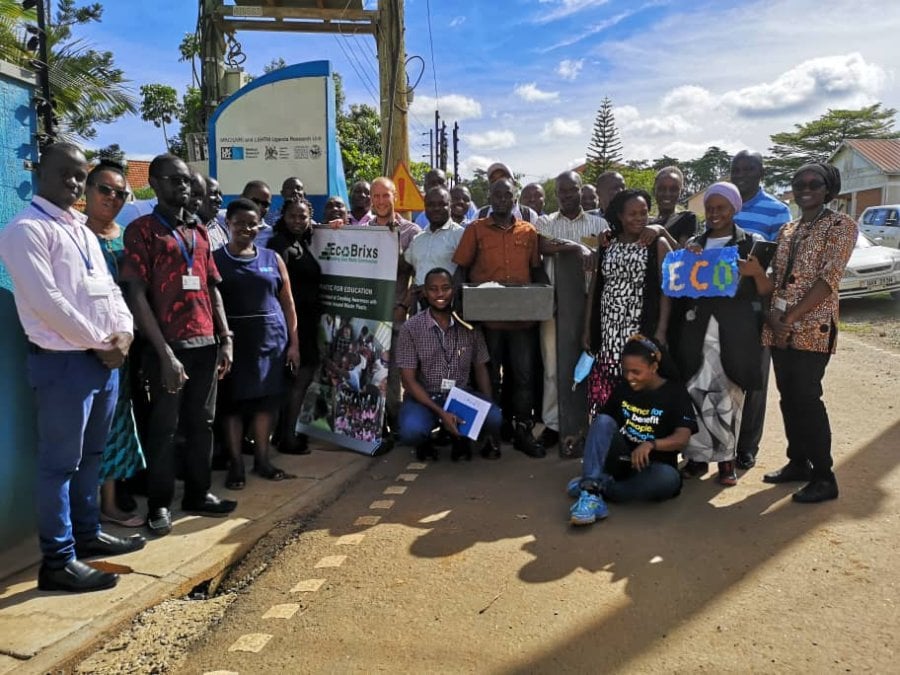Advancing Sustainable Research: The Unit's Community-Based Clinical Research Centre Teams Up with Local Recycling Partner
13 December 2023 London School of Hygiene & Tropical Medicine London School of Hygiene & Tropical Medicine https://lshtm.ac.uk/themes/custom/lshtm/images/lshtm-logo-black.png
The clinical research center of The Unit in Masaka City, located in southwestern Uganda, has formed a strategic partnership with EcoBrixs, a local recycling firm boasting the largest recycling plant beyond Kampala city. This collaboration aims to institute effective systems for sustainable research practices. The research facility serves as the hub for all community-based clinical trials conducted by The Unit. On a daily basis, it efficiently processes samples collected from research participants spanning a considerable distance and numerous villages, employing cutting-edge laboratory equipment and ensuring samples are stored at optimal temperatures around the clock.
In an effort to promote a sustainable environment, EcoBrixs organized a workshop at the self-sustaining field station. This session significantly increased awareness among the staff about various methods of conducting research activities with a heightened focus on environmental sustainability. Emphasis was placed on the significance of substituting unsustainable materials with more energy-efficient alternatives at every stage of work to mitigate the adverse impacts of scientific endeavors on the environment.
Subsequently, the clinical research facility has implemented collection points for various types of plastic waste across the site, actively utilized by its staff. This initiative is slated to be expanded to all Unit sites and is anticipated to contribute to the production of durable recycled plastic products not only by EcoBrixs but also by other recycling facilities nationwide.
Over the last 34 years, the Unit has established high-tech clinical research facilities and expertise to conduct clinical trials to international standards in Uganda. Key infrastructure includes clinics to enroll and treat study participants as well as accredited diagnostic laboratories that are essential to monitor the safety of trial participants. Through increasing competitive investment, the Unit has also established advanced laboratories for immunology and sequencing adding additional research value and capacity locally. To ensure fair and equitable treatment of our research participants, the Unit also provides free outpatient care including vaccination programmes to study populations which makes an additional vital contribution to health in otherwise under-served areas.
LSHTM's short courses provide opportunities to study specialised topics across a broad range of public and global health fields. From AMR to vaccines, travel medicine to clinical trials, and modelling to malaria, refresh your skills and join one of our short courses today.